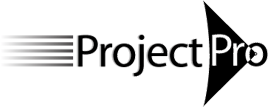
Forecast Scheduling - article
Regular price
$0.00 USD
Sale
This article is an excerpt from the book “Forecast Scheduling with Microsoft Project 2013” by Eric Uyttewaal. Forecast scheduling is an approach to scheduling that requires the schedule by itself to produce accurate forecasts continuously. If we want the schedule to forecast, we need to create a valid, dynamic and robust model that forecasts the project. A forecast schedule provides the following benefits:
• It provides constant feedback on whether the project deadline date and budget can still be met
• It facilitates what-if scenario development
• It is essential for program management
• It is required for schedule simulation
To realize a forecast schedule, project managers need to do the following:
• Project managers will use deadline dates or the schedule baseline to capture the original schedule
• Project managers want to minimize the time spent on scheduling their project
• Project managers will update their schedules by constantly revising the to-complete estimates
• Project managers will be brutally honest to the project stakeholders and enter into the model all factors that affect the forecasts
• It provides constant feedback on whether the project deadline date and budget can still be met
• It facilitates what-if scenario development
• It is essential for program management
• It is required for schedule simulation
To realize a forecast schedule, project managers need to do the following:
• Project managers will use deadline dates or the schedule baseline to capture the original schedule
• Project managers want to minimize the time spent on scheduling their project
• Project managers will update their schedules by constantly revising the to-complete estimates
• Project managers will be brutally honest to the project stakeholders and enter into the model all factors that affect the forecasts
